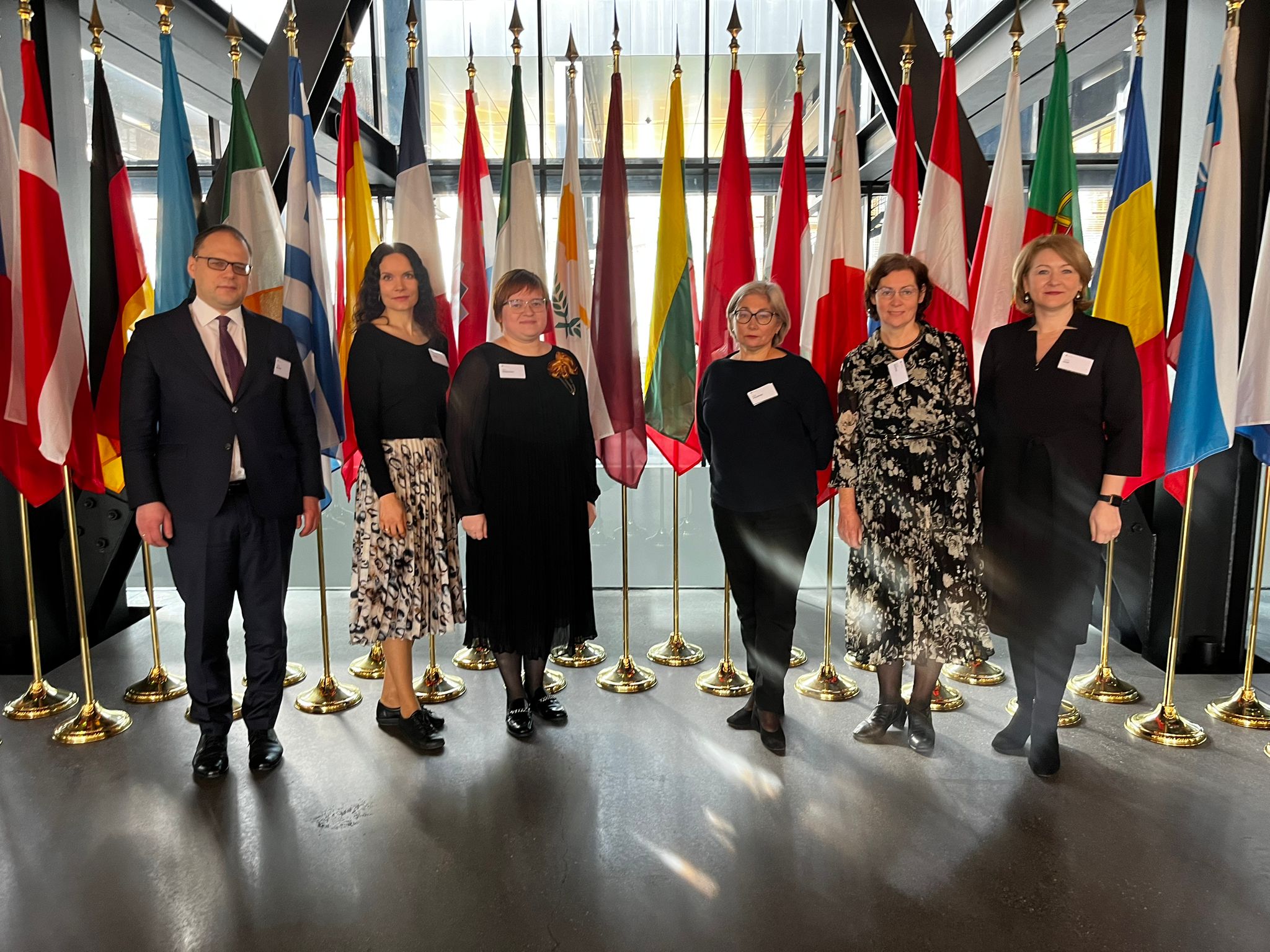20 March, 2024
During the experience exchange visit to the Court of Justice of the European Union (CJEU), the senators of the Supreme Court of Latvia attended several court hearings, learned about the work of the Court and its departments, and gained insight into several aspects of the operation of the General Court.
Senators Kaspars Balodis, Sandra Kaija, Anita Kovaļevska, Ieva Višķere, Anita Poļakova and Marika Senkāne had the opportunity to follow the proceedings of three court sessions.
In the case C-144/23 (KUBERA), the CJEU examined the preliminary questions of the Supreme Court of Slovenia, which pertained to procedural aspects of the activities of member states' revision (cassation) instance courts. A number of countries, including Latvia, presented their considerations in the case, describing their respective rules of civil procedure in the context of a relevant issue.
When reviewing the lawfulness of a decision of the European Commission, the General Court in the case T-624/15, T-694/15, T-704/15 (RENV) had to decide various issues related to state aid and investment protection, including whether the compensation awarded by the arbitration court can be considered a payment granted by the state within the meaning of the concept of state aid.
Whereas, in the case C-230/23 (Reprobel), in which Ineta Ziemele was the judge-rapporteur, a Belgian court had submitted a request for a preliminary ruling on an issue whether the copyright collective management organization, which has been entrusted by the State, by means of a royal mandate, to collect and distribute the fair compensation to authors, is an entity against which an individual (in the specific case – the manufacturer of copying equipment) may rely, in his or her defence, on the incompatibility with EU law of a national provision which that entity seeks to impose on that individual. The issue of the legal status of the collective management organization, from the point of view of the interaction of private and public law, was also of significant importance in the case.
The Supreme Court delegation participated in a series of meetings that provided an opportunity for the exchange of ideas and information. The senators met with judge Ineta Ziemele, thus gaining an insight into important aspects of the judge's work at the CJEU and into the procedural issues of the progress of cases. Judge of the General Court Pēteris Zilgalvis informed about case-law of the General Court in competition cases and findings in the field of digital and artificial intelligence. Advocate General Laila Medina presented the role of an Advocate General at the CJEU and her experience in this position. The senators also learned about the operation and functions of the Registry. Useful information about the possibilities, tools and methods of researching case-law of the CJEU was provided by the Research and Documentation Directorate. Vineta Bei, the Legal Secretary at the chambers of Judge Reine, introduced the delegation with recent cases of the General Court, statistics, as well as the most important findings.
The senators learned of the enormous importance of the everyday work of the interpreters’ service at the CJEU, which is translating not only court hearings, but also procedural documents. Pēteris Zilgalvis, who works in a specially created committee for the introduction of artificial intelligence in the CJEU, stated that the development of the field of artificial intelligence in the Court is progressing rapidly. Already right now artificial intelligence is used to relieve the work of interpreters, as well as applied in the fields of case management and statistics.
Information prepared by
Rasma Zvejniece, the Head of the Division of Communication of the Supreme Court
E-mail: rasma.zvejniece@at.gov.lv, telephone: +371 67020396, +371 286522




